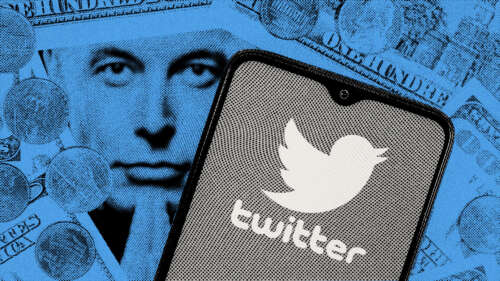In a year that has seen digital currencies, digital artwork, digital contracts, digital finance and so many more digital assets and entities skyrocket, perhaps it was inevitable that we reach this crescendo: a digital universe.
Facebook’s recent announcement that it was rebranding to ‘Meta’ caused an enormous spike in engagement around ‘the metaverse’, an immersive, virtual world that CEO Mark Zuckerberg believes will be the next evolution of social technology. However, the above graph illustrates that the term had already begun to embed itself into the modern lexicon well before Facebook’s rebrand.
Inevitably, Facebook’s name change has sparked major controversy. The move has been labelled by many critics as a PR stunt in an effort to distract from the growing negative sentiment towards the company. Rather than focusing on this debate, we decided to tap into the excitement surrounding the possibilities that could emerge from the metaverse and break down the communities who are engaging with this new reality.
The audience at a glance
Our analysis revealed a wide range of audiences, which is perhaps the most interesting finding in itself. The widespread awareness and engagement around the topic highlights the role that technology plays in so many different spheres of modern society, from the world of business through to current Pop Culture.
Naturally, the audience is immensely digitally-savvy with a younger skew thanks to an array of Gen Z and Millennial tribes. Creativity was another persistent theme, with members of the Film, Design and Music industries indexing strongly, while more niche passions such as Fictional Literature and Anime denote a real imaginative capacity to the audience.
The Facebook Impact
We were also able to contrast the audiences posting about the metaverse before vs after the Facebook announcement.
There are a number of key differences we can identify:
1. Unsurprisingly, Tech & Blockchain Enthusiasts were engaged with the concept long before Facebook entered the metaverse.
2. Facebook’s involvement attracted a number of politically-engaged, generally liberal audiences.
3. Game Developers were engaged before the announcement, while the broader gaming community appear to have engaged afterwards.
Key Findings
A native home for digital assets
Since the metaverse offers a natural landscape and home for digital assets, it’s no surprise that it is creating a serious buzz across the Cryptocurrency and NFT communities. Tech & Blockchain Enthusiasts formed the number one tribe, making up 23% of the total audience. As the most persistent engagers, we expect this audience will continue to advocate for the creation and adoption of a metaverse over the coming years.
A world where games become reality
Gaming will be one of the largest use cases for the metaverse, certainly in its early iterations, hence why Gamers and Game Developers alike appear so excited about its potential. Some existing games, such as Fortnite, have been labelled as early iterations of the metaverse, acting as virtual spaces where people can go to game together, create together and hang out together. The gaming sector is probably the strongest driver of demand for this concept.
Technology & Innovation are ‘cool’
The link between future-facing technologies and Hip-Hop has continued to evolve over the past year, emerging in our deep dives into both our crypto and NFTs audience analyses. To us, this link points to a more mainstream, younger audience whose primary passion is not necessarily technology, which in turn illustrates how futurism and tech are no longer sidelined for ‘geeks’ and ‘nerds’, but rather trending concepts making a lasting mark on contemporary culture.
Looking for more insights into your ideal audience? Book a demo with our team.





































